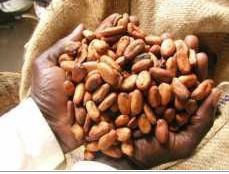Ghana has signed an accord with its neighbour, Cote d’Ivoire, for closer collaboration in the areas of cocoa production and marketing.
The Accra Agreement, signed on Friday, June 2, this year at the end of the two-day second technical cooperation meeting between both nations in the Ghanaian capital, seeks to assist the two countries to collaboratively tackle many challenges adversely affecting their cocoa economy, especially the issue of foreign pricing of cocoa by the West and Asia, among others.
It was signed by the Chief Executive Officer (CEO) of Ghana Cocoa Board (COCOBOD) and the Director-General of the Council of Coffee and Cocoa, Cote d’Ivoire respectively on behalf of both countries.
The consistent drop in cocoa prices on the world market and the continuous foreign pricing of cocoa, forced the two countries to enter into the partnership.
The two leading producers feel shortchanged with respect to cocoa prices on the world market, which is mostly determined on the international market, and not at the domestic level.
CEO of Cocobod, Joseph Boahen Aidoo, in a statement shortly before the signing of the accord, observed that participants during the two-day meeting deliberated on a wide range of issues relating to the production of cocoa and its price on the global market, illegal mining activities in coca producing areas, social and cultural issues, child labour, among others.
The essence of the meeting, he intimated, was to find lasting solution to foreign pricing of cocoa, especially considering the adverse impact the recent fall in world cocoa price has had on the economies of the two countries.
He said the time has come for stakeholders in the cocoa sectors in Ghana and Cote d’Ivoire to end the excessive talk and take concrete steps to improve the welfare of cocoa farmers by ensuring that their produce are sold at better prices.
Nations across four continents make the top 10, and Ghana and Cote d’Ivoire currently occupy the first and second positions respectively, followed by Indonesia, Nigeria, Cameroon, Brazil, Ecuador, Mexico, Peru and Dominican Republic.
The two leaders accordingly contribute about 60 percent of world’s production of cocoa.
Ghana, which accordingly produced about 850,000 tonnes of cocoa beans for the 2016/2017 crop season reportedly lost about $1 billion due to the fall in cocoa prices on the world market from over $3,000 to about $1,880, while its counterpart, Cote d’Ivoire lost about $4 billion during the period under review, according to the CEO of Cocobod.
Director-General of Council of Coffee and Cocoa, Cote d’Ivoire, Massandje Toure-Litse, spoke about the urgent need for the two countries to work hard to sustain their cocoa economy.
“The time for too much talk has passed, it’s time for work,” he said, adding that we need to put practical modalities at work to address the challenges facing the sector.
Business News of Tuesday, 6 June 2017
Source: peacefmonline.com
Ghana, Cote d’Ivoire sign cocoa deal
 The two leading producers feel shortchanged with respect to cocoa prices on the world market
The two leading producers feel shortchanged with respect to cocoa prices on the world market
















